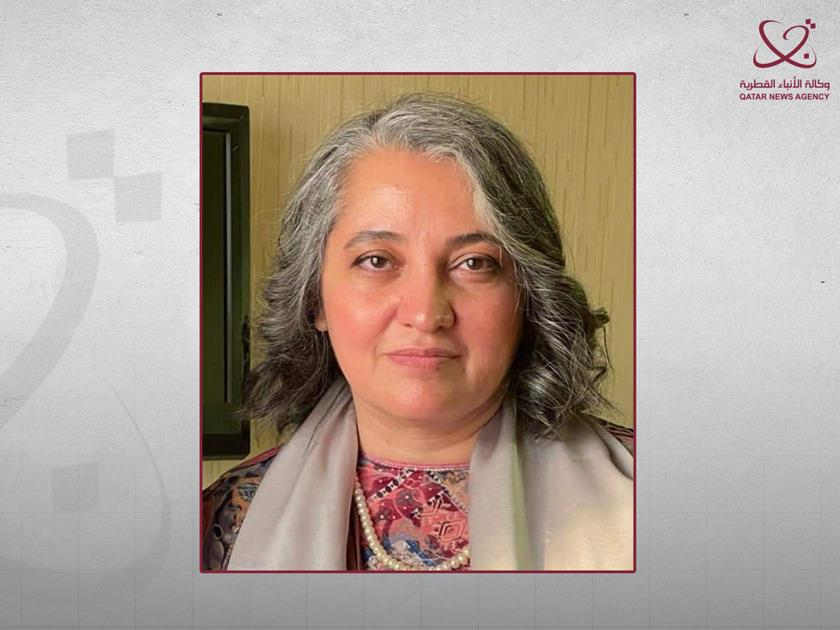
Sheikh Hamad Award Plays Vital Role In Promoting Translation: Egypt's Director Of The National Center For Translation
Cairo: Director of the National Center for Translation in Egypt Dr. Karma Sami praised the role of the Sheikh Hamad Award for Translation and International Understanding in encouraging and motivating translators, highlighting its significant contribution to advancing translation on both the Arab and international levels. She emphasized that this award serves as an exemplary model in promoting translation efforts.
In an exclusive interview with Qatar News Agency (QNA), Dr. Sami stressed the importance of this award, especially given its growing success each year and its recognition of translators from various languages around the world. She encouraged the continuation of this approach in future editions to include an even broader range of languages annually, to further encourage translators, and suggested adding new fields of knowledge alongside the humanities and social sciences.
Dr. Sami emphasized the importance of establishing an Arab strategy for translation as part of a comprehensive cultural and educational renaissance, enhancing collaboration among Arab countries in translation, under the auspices of the Arab League and prominent cultural institutions. She added that initiating a dialogue on this matter is a positive step that could lead to real future cooperation, ensuring the exchange of expertise among translators and reviewers, which would fulfill the vision of establishing translation centers in every Arab country. She highlighted that this Arab strategy should involve creating a database and a practical framework, as all means are available to share authentic Arab culture with the world without distortion.
Dr. Sami pointed out the need for the Arab world to promote translation in fields like science, technology, future studies, and digital advancements. She suggested that the Sheikh Hamad award for Translation and International Understanding could leverage its success in the coming years by introducing new categories in these areas.
She acknowledged the challenges translators face both locally and globally but noted that the industry of translated books continues to thrive. Dr. Sami emphasized that translators require support from publishers, cultural institutions, and media outlets, along with the encouragement of translation awards that highlight their efforts.
On opportunities to discover and nurture new translators, Dr. Sami stressed the need for dedicated efforts to identify and train emerging translators. She stated that a translator's journey begins in the early years of schooling, and that curricula should not favor foreign languages at the expense of the native language. Furthermore, she argued that a foreign culture should not overshadow the national culture, as translation success requires a broad cultural and educational uplift in society to produce the number of translators needed for a translation renaissance.
She emphasized that the main principle translators should adhere to is the benefit of the nation.
Dr. Sami reviewed the history of translation movements in the Arab world, their role, and the means to improve them, addressing the various challenges translators face through new initiatives and ideas.
In conclusion, Dr. Karma Sami acknowledged the efforts of Arab countries that have established specialized translation centers aimed at benefiting the Arab reader and raising awareness of the significance of translation culture.

Legal Disclaimer:
MENAFN provides the
information “as is” without warranty of any kind. We do not accept
any responsibility or liability for the accuracy, content, images,
videos, licenses, completeness, legality, or reliability of the information
contained in this article. If you have any complaints or copyright
issues related to this article, kindly contact the provider above.


















Comments
No comment